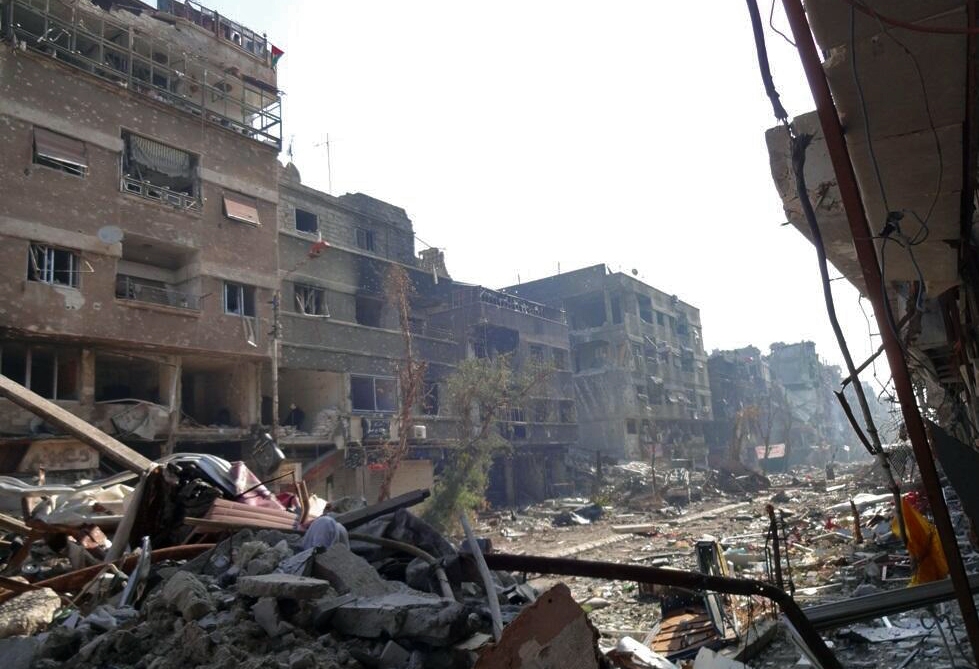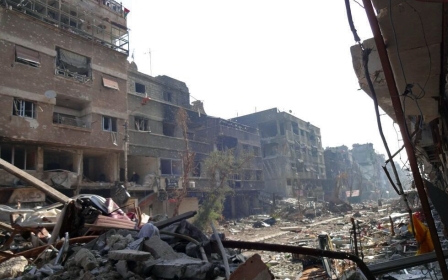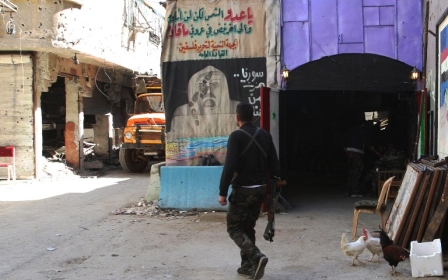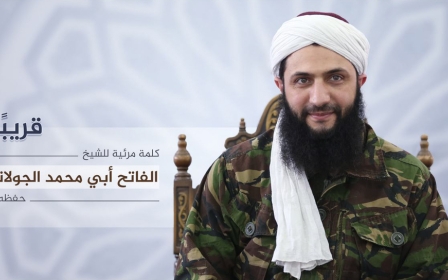Nusra Front fighters to be evacuated from Syria's Yarmouk

Agreement has been reached to evacuate wounded fighters of the group formerly known as Nusra Front from Yarmouk, in the southern suburbs of Damascus, to rebel-held Idlib province, Hezbollah-affiliated al-Manar TV reported on Sunday.
The agreement is the second phase of an earlier deal to evacuate people from two towns besieged by rebels, and two towns besieged by pro-government forces, the first phase of which was implemented last month, al-Manar reported.
The wounded fighters and some others accompanying them would form a group of about 50, reported the television channel, which is based in Lebanon. Hezbollah, also from Lebanon, is a close military ally of the Syrian president, Bashar al-Assad.
Nusra Front was the official branch of al-Qaeda in Syria until a year ago, when it broke formal allegiance to the movement and renamed itself.
It has since joined a number of other militant groups under the new name Tahrir al-Sham.
Both Nusra Front and later Tahrir al-Sham have at times fought alongside other rebel groups, including those that operate under the banner of the Free Syrian Army, against the government and at times have clashed with them.
Yarmouk, in the southern suburbs of Damascus, is the location of a large Palestinian refugee camp.
Parts of the area are held by the government, parts by rebels including Tahrir al-Sham, and parts by the Islamic State group.
An earlier deal involved evacuating civilians from the rebel-besieged Shia Muslim towns of Kefraya and Fua in Idlib province in return for the departure of civilians and rebel fighters from Zabadani and Madaya, near Damascus.
Completed late last month, that agreement was the largest and most complex so far in a series of evacuation deals for besieged areas that have grown more common over the past year in Syria's civil war.
While Assad's government in Damascus has praised such deals as a way to reduce bloodshed, the rebels have condemned them as a means to impose demographic change by forcing large numbers of civilians to leave pro-opposition areas.
The United Nations, which has not been party to the agreements, has also voiced concern that they amount to forced displacement.
Middle East Eye propose une couverture et une analyse indépendantes et incomparables du Moyen-Orient, de l’Afrique du Nord et d’autres régions du monde. Pour en savoir plus sur la reprise de ce contenu et les frais qui s’appliquent, veuillez remplir ce formulaire [en anglais]. Pour en savoir plus sur MEE, cliquez ici [en anglais].




